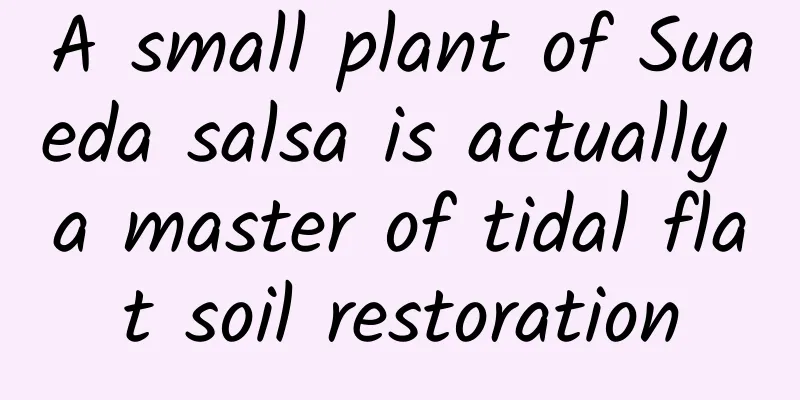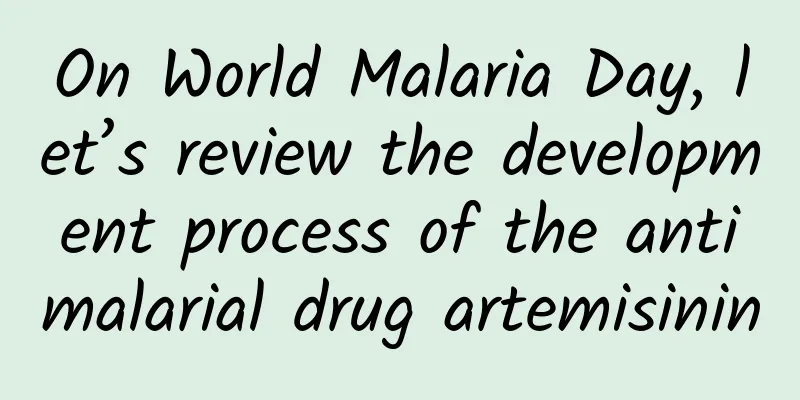A small plant of Suaeda salsa is actually a master of tidal flat soil restoration

|
Every autumn and winter, you can always see a giant "red carpet" in Panjin City, Liaoning Province. Its shape is like brocade, its flames are like fire, and seagulls are circling in the sky, creating a picturesque scenery. This beautiful "red carpet" is "woven" by Suaeda salsa. Suaeda salsa, also known as Suaeda salsa, is the "front row" plant closest to the seawater on the mudflats. Although it is inconspicuous, the densely connected clumps of Suaeda salsa can become one of the natural wonders seen from space. For example, the Red Beach Wetland Corridor at the mouth of the Liaohe River in the southwest of Panjin City, Liaoning Province is 18 kilometers long and is known as the "World Red Coastline". A "red beach" appeared near the Dagang Oilfield in Tianjin Binhai New Area. However, in recent years, due to factors such as changes in the coastline, rising salinity in soil and seawater, and climate and environmental changes, the area of the "red carpet" has shrunk. The exposed mudflats look like patches of ugly alopecia, and migratory birds have lost their places to forage and hide. In order to "retire from wetlands" and give birds a habitat, the relevant departments of Panjin City have actively implemented the Suaeda salsa restoration project, actively restoring the Suaeda salsa by dredging tidal channels, expanding water storage, replanting Suaeda salsa seeds, and releasing sandworms and mudskippers to open up biological migration channels. At present, the area of the red beach in the scenic corridor has increased to 22,000 acres this year, expanding more than 10 times in 5 years. In the city, Panjin has restored 577 hectares of degraded wetlands and 574 hectares of Suaeda salsa wetlands. As people retreat and birds come in, the list of bird species in Panjin wetlands has increased from more than 200 to 304 this year after the restoration of the natural ecology. More than 1 million water birds migrate, stop or breed in Panjin every year. The breeding population of black-headed gulls has increased from 1,200 in the early years to 11,696 this year, becoming one of the successful examples of endangered species protection in China. In the Bohai Sea, Suaeda salsa has transformed itself into the "pioneer defender" of coastline restoration. Bohai Sea is the only inland sea in my country. Its poor hydrodynamic conditions determine its limited self-purification capacity. Long-term pollution has caused serious damage to the ecological environment of Bohai Sea. Especially when the Liaohe Oilfield was built in the 1980s, in order to protect the oilfield facilities, the ground in some nearby places was hardened, causing the water of Daling River to swing back and forth, throwing silt to this side, and the riverside beach became a wasteland covered with silt. In response to this, the relevant departments of Jinzhou City actively adopted the Dalinghe Estuary Ecological Restoration Project. On the one hand, artificial breeding facilities were dismantled and temporary dams were built; on the other hand, silt was removed, soil was covered and filled with planting soil from other places, and fresh water supply was increased to transform the soil. Plants such as Suaeda salsa were planted. After two or three years, when the growth of Suaeda salsa and other plants stabilized, the dam was removed to restore the natural growth environment. By planting Suaeda salsa and other plants, the ecological environment quality of the tidal flats was improved. After two or three years, the estuary tidal flat wetlands will form an environmental state of natural transition with Suaeda salsa and the beach combined. The wetland environment has improved, and birds have also flown in. Today, the number of resident birds and migratory birds that inhabit here and pass through every year reaches millions, including relatively rare birds such as red-crowned cranes, white storks, and swans, which are increasingly appearing in the wetlands and skies of the Dalinghe Estuary. Although Suaeda salsa is small, it has great power. It can improve tidal flat soil, attract birds to inhabit, and let us see the possibility of harmonious coexistence between man and nature. We hope that this "red carpet" will become more and more red and help wetland restoration. Review expert: Tu Qiang, deputy editor of Ocean Publishing House China Association for Science and Technology Department of Science Popularization Xinhuanet Co-production |
>>: The most expensive red wine in the world, maybe you have tasted it
Recommend
What is the structure of a neutron star? Like a chocolate bar
What's the tastiest-looking celestial object?...
What happened on the day the dinosaurs went extinct? Sturgeons know the answer
Sixty-six million years ago, an ornithischian pla...
Side Effects of Berberine
Everyone eats the wrong thing sometimes, and some...
The efficacy and function of tree 茭瓜
We can often see tree water melon in daily life, s...
The efficacy and function of Elecampane[picture]
The Chinese herbal medicine Inula [picture] is a ...
The efficacy and function of chicken bone incense
As a traditional Chinese medicine, chicken bone i...
What are the medicinal values of Ganoderma lucidum?
Ganoderma lucidum, also known as Haizhou Drynaria...
Ancient bridges also hide hard-core technology? Arch bridges - technology that spans time and space
When we talk about the technology in ancient buil...
The cold front is coming again! Will it have an overlapping impact with the cold wave at the beginning of the month? Here comes the authoritative interpretation!
November 19-22 A strong cold front will move from...
What are the effects and functions of Scutellaria barbata?
There are actually many functions and effects of ...
There is a mysterious number about China's space station: 6, 6, 6, 6
Zhang Bainan, deputy to the National People's...
Is it easy to gain weight as you age? Is there an "age cutoff" for gaining weight? Learn more in this article →
Obesity has become a global public health problem...
The efficacy and function of Dicranopteris dichotoma
Dicranopteris dichotoma is a famous traditional c...
Come and learn! Doing these exercises more often can prevent cervical spondylosis
Author: Tang Qin, Researcher of Chinese Medical A...









